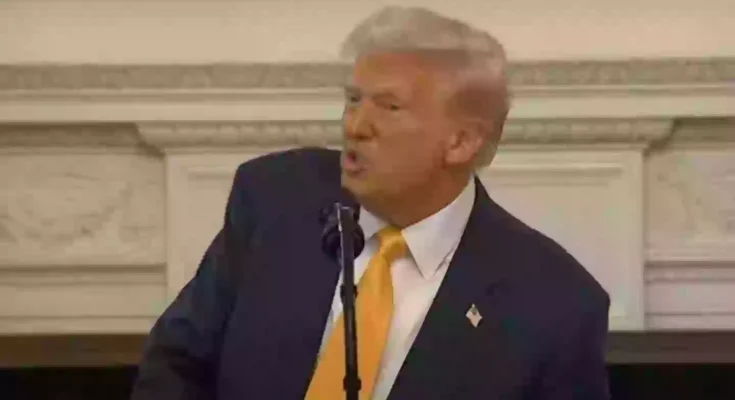Warning: This article contains discussion of trans issues which some readers may find distressing.
Just days ago, President Donald Trump had a heated debate with Maine Governor Janet Mills over his executive order banning trans athletes in women’ sports.
During a meeting with the governors at the White House on Friday (February 21), Trump told Mills that she must comply with his executive order which proposes to keep transgender women and girls from competing in women’s sports.
Trump singled out Mills during the discussion, as he explained that he had heard Maine is the only state that is unwilling to comply with his order, before insisting that he will pull funding from the state – including schools, if she refuses to follow his ruling.
“Are you not going to comply with it?” Trump asked her, to which Mills replied: “I’m complying with state and federal laws.”
The president then threatened: “We are federal law, you better do it. You better do it, because you’re not going to get federal funding… Your population doesn’t want men in women’s sports.”
“We’ll see you in court,” Mills replied.
“Good. I’ll see you in court. I’ll look forward to that. That should be a real easy one.” Trump responded. “And enjoy your life after, governor, because I don’t think you’ll be in elected politics.”
According to some of the governors, the discussion was ‘uncomfortable’.
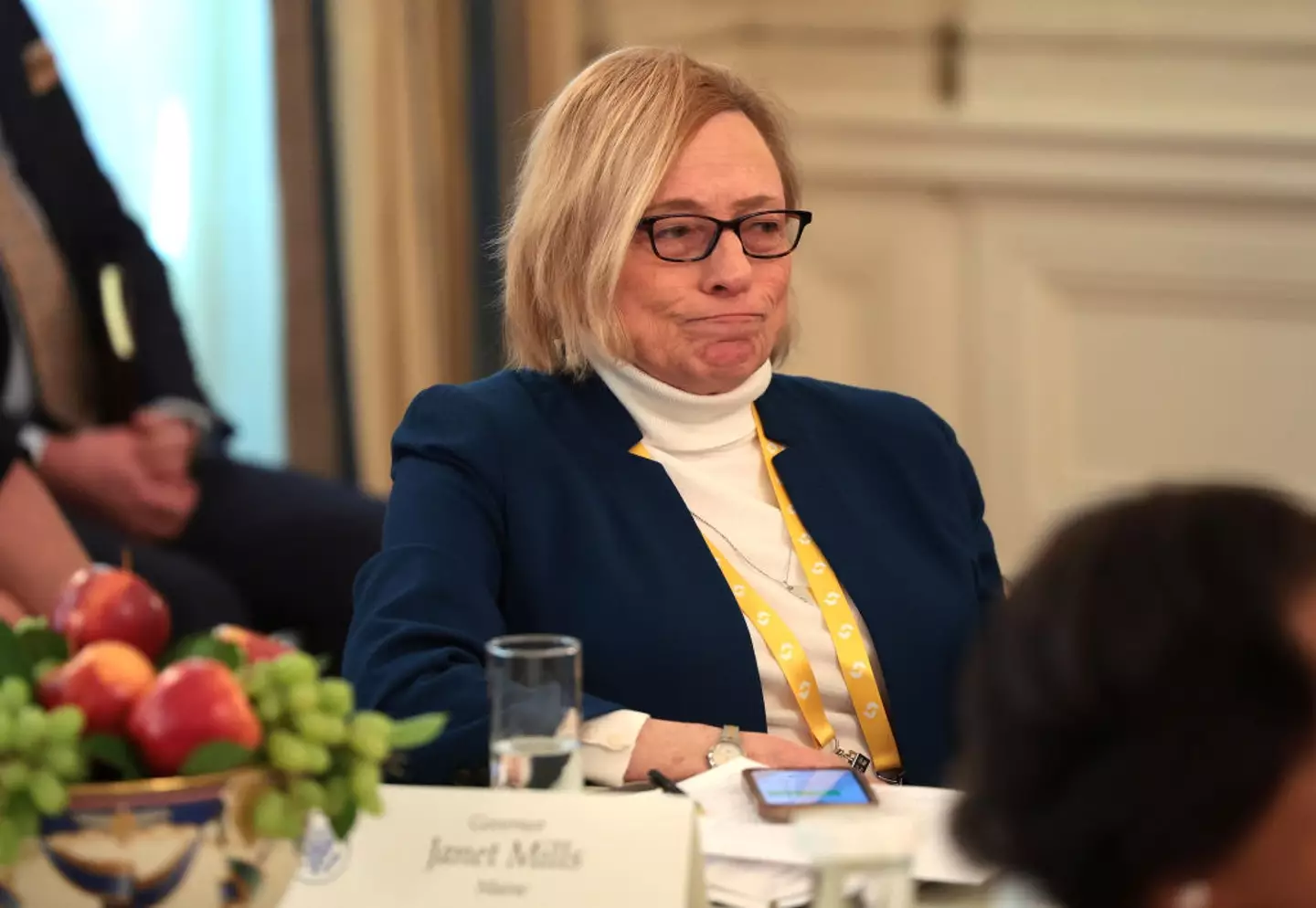

Maine Governor Janet Mills challenged Trump at the meeting (Win McNamee/Getty Images)
Speaking to Mail Online, vice-chair of the National Governors Association (NGA) Kevin Stitt, who is also the governor of Oklahoma, said: “It was a little uncomfortable in the room. But, like Governor Polis said, I wasn’t sure exactly what the backstory was behind the conflict there.”
Meanwhile, Colorado Governor Jared Polis claimed the discussion wasn’t great in terms of attempting to generate a productive discourse between members on the NGA.
“We always hope that people can disagree in a way that elevates the discourse and tries to come to a common solution.” he said.
However, Stitt went on to say that it ‘may have been good politics for both sides’, adding: “The NCAA has followed that, I think the Olympics have. And then you have a governor saying that they’re not going to follow that.
“So, I don’t know what legal background she has, but they talked about seeing each other in court. And we’ll see what happens.”
Part of Trump’s executive order aims to strip funding towards schools who allow trans girls to compete in women’s sport, however, the Maine Principal’s Association decreed earlier this month that they would still be allowing trans students to partake, citing the Maine Human Right’s Act, PBS reports.
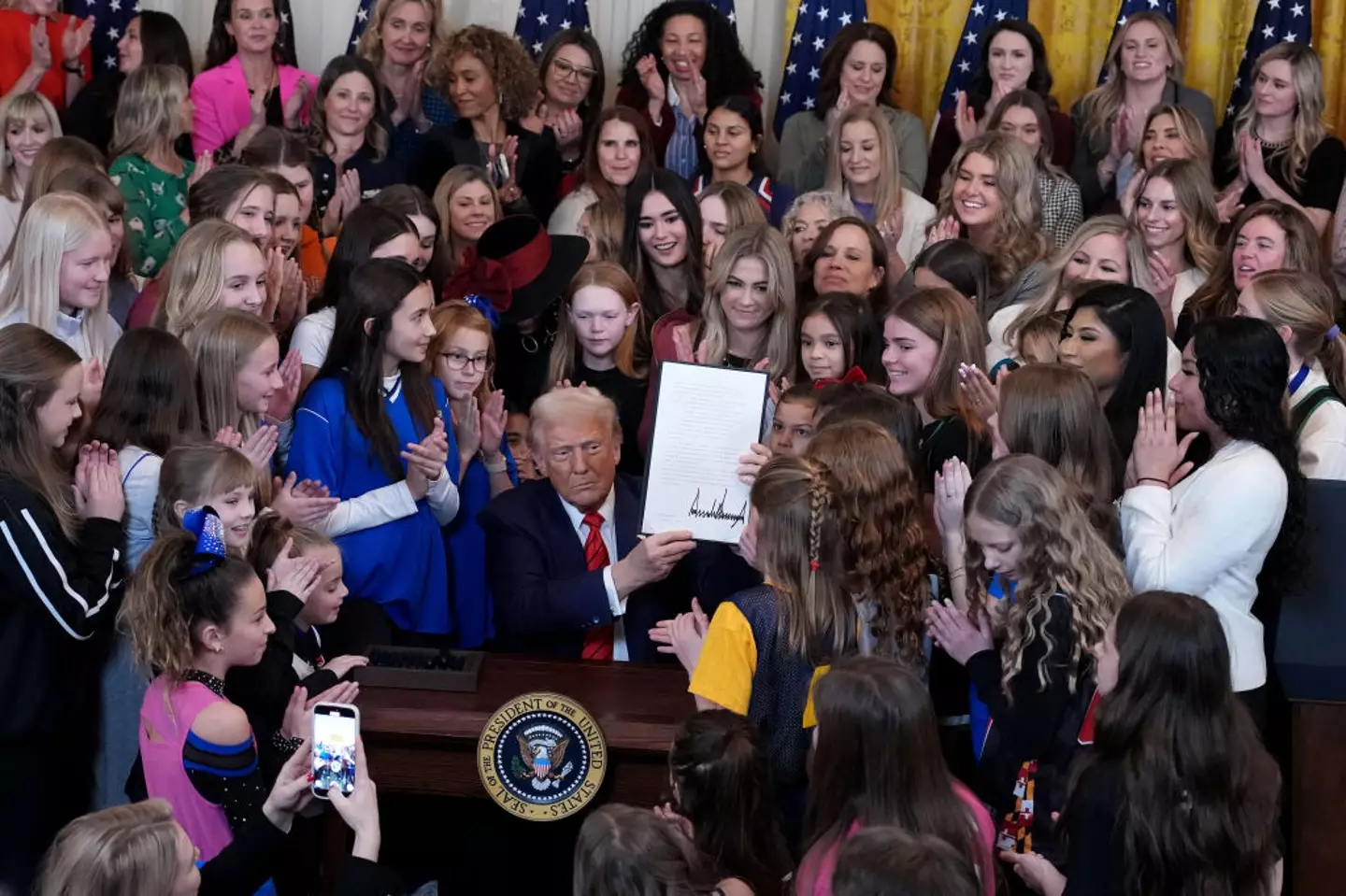

President Donald Trump signed an order banning trans women and girls from competing in women’s sport (Andrew Harnik/Getty Images)
Prior to his debate, Trump was reported as saying they wouldn’t be receiving federal funding ‘until they clean that up’.
In a statement, Mills said (via The Independent): “If the president attempts to unilaterally deprive Maine school children of the benefit of federal funding, my administration and the attorney general will take all appropriate and necessary legal action to restore that funding and the academic opportunity it provides.”
This led to an investigation by the U.S. Department of Education’s Office of Civil Rights into Maine’s alleged violation of Title IX.
In a statement, Mills said she’d be working alongside the general attorney to defend Maine in court, however, she added that she believed this was about ‘whether a President can force compliance with his will, without regard for the rule of law that governs our nation’, which she says he ‘cannot’.
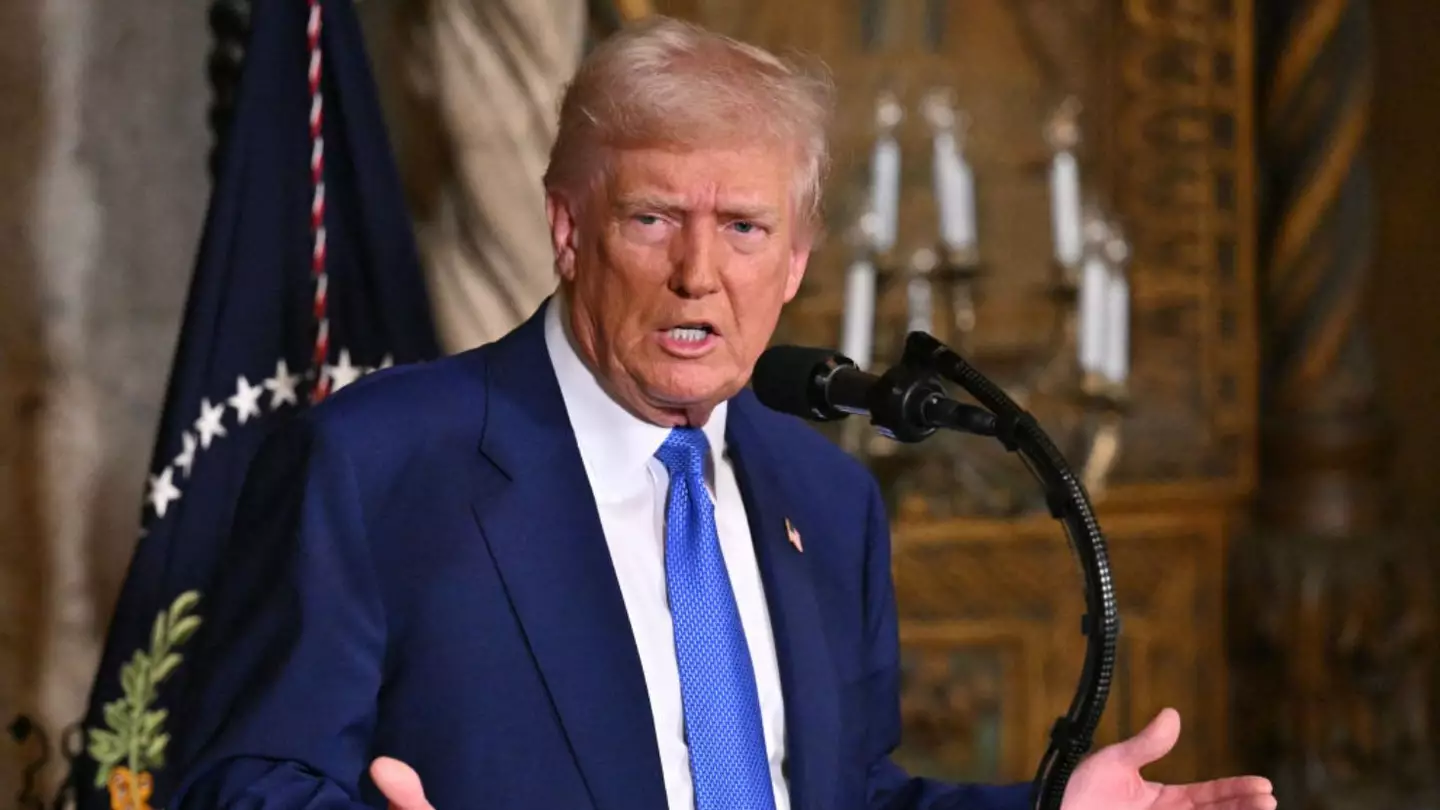

Donald Trump has done what presidents of the United States have actively declined to challenge in the past – and it could greatly expand his power, experts say.
Trump’s second term in office has already been marked with a flurry of executive orders being signed, including renaming the Gulf of Mexico to the Gulf of America, tax tariffs on Canada and China, and one targeting transgender women in sports.
Earlier this month, the father-of-five also signed orders to end Covid-19 vaccine mandates in schools, eliminating the procurement of paper straws and creating a new White House Faith Office to replace the ‘White House Office of Faith-Based and Community Initiatives’.
.jpg)
.jpg)
Donald Trump has signed a slew of executive orders since resuming office (Andrew Harnik/Getty Images)
On Tuesday (February 18), President Trump, 78, signed his latest executive order to bring notoriously independent agencies under the White House’s control.
How the executive order would affect independent agencies
This now means all agencies – such as the Federal Trade Commission (FTC) and the Securities and Exchange Commission (SEC) – must submit draft regulations for the president to review instead of just giving them the green light themselves.
They must also consult with politicians on their ‘priorities and strategic plans’.
It’s also stipulated that there will be ‘no carve-out’ for the former independent agencies. The only exemption to this rule is the Federal Reserve’s monetary policy functions.
The order states that all executive branch officials and employees are now subject to Trump’s supervision and that the Office of Management and Budget will ensure tax dollars are being ‘spent wisely’.
“The President and the Attorney General (subject to the President’s supervision and control) will interpret the law for the executive branch, instead of having separate agencies adopt conflicting interpretations,” the order continues.
The FTC, the SEC, and the Federal Communications Commission (FCC) are the three former independent agencies named in the document.
Trump claims they have all previously ‘exercised enormous power over the American people without Presidential oversight’.
The executive order alleges that this trio have issued rules and regulations that cost the country billions of dollars in the past and that they will ‘no longer impose rules on the American people without oversight or accountability’.
According to the writ, executive power has ‘no place’ in the United States.
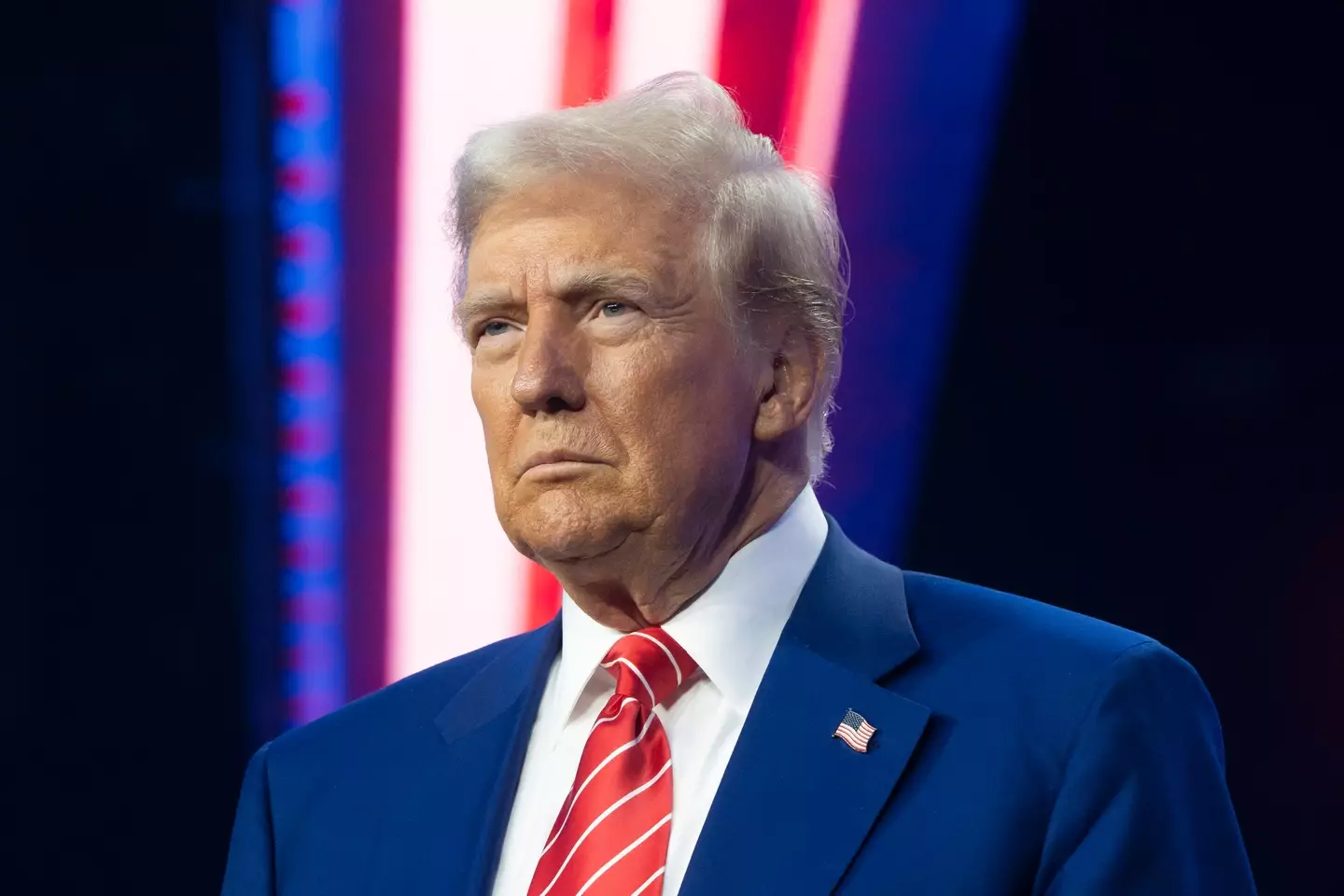

Independent agencies must now report to the White House (Rebecca Noble/Getty Images)
“Executive power without responsibility has no place in our Republic. The United States was founded on the principle that the government should be accountable to the people,” the order reads.
“That is why the Founders created a single President who is alone vested with ‘the executive Power’ and responsibility to ‘take Care that the Laws be faithfully executed’.”
According to Politico, it will now be up to Russell Vought – acting director of the Consumer Financial Protection Bureau – to ‘establish performance standards and management objectives’ for the heads of the independent agencies’.
It’s said that he will ‘report periodically to the president’ on the agencies’ performance and efficiency while making ‘necessary and appropriate’ changes to the agencies’ budgets.
This will all be completed in line with the advancement of the President’s ‘policies and priorities’.
How the executive order could make Trump one of the most powerful presidents in history
By ‘reigning in’ and intruding on the independent agencies, Trump has greatly expanded his power as the 47th President of the United States, says Politico.
He is also breaking the mould, as former leaders like Barack Obama have not only declined to challenge the independent nature of the FTC, the SEC and the FCC in the past but have actively tried to avoid the appearance of interference.
The publication claims that some leaders of the independent agencies – who will now have to report to Trump – have lasted longer in office than actual presidents.
This is reportedly in an effort to ‘help shield them from political pressure’.


Donald Trump has once more alluded at his intentions of running for president again.
President Trump is currently serving his second term in office, having been sworn in again last month at the White House.
The businessman-turned-politician first served as president from 2017 to 2021 and, while he wanted to serve another term, he lost the election to Joe Biden.
Now Trump’s back once more and, while there’s legislation that states a person cannot be president for more than two terms, the 78-year-old keeps teasing that he may run again.

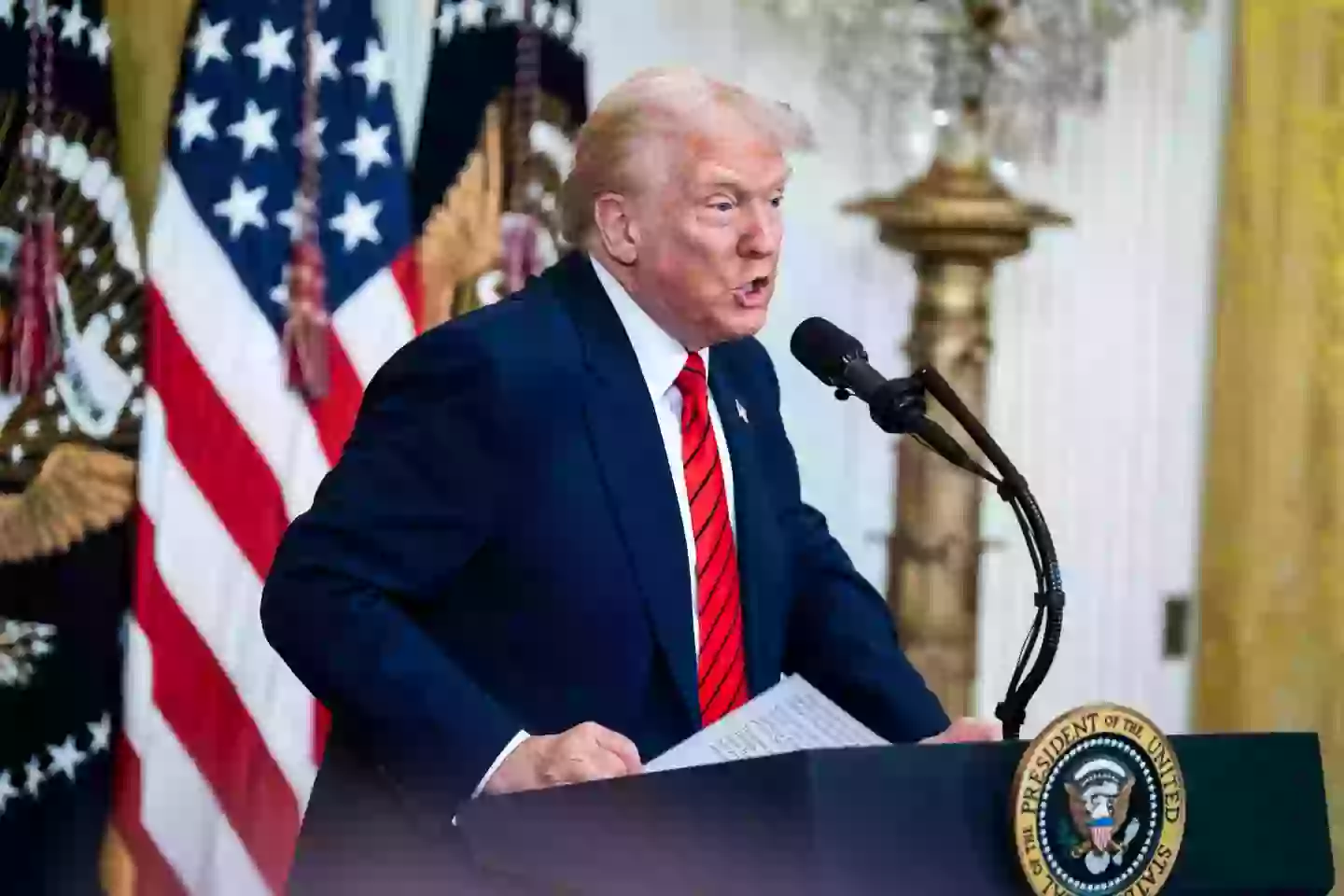
President Trump has once more alluded to his plans to run for a third term (Jabin Botsford/The Washington Post via Getty Images)
Yesterday (February 20), the POTUS hosted a Black History Month event at the White House where he boasted that his party received ‘more votes from Black Americans than any Republican president ever’.
Trump continued to say: “I won’t be happy the next time. Should I run again? You tell me.”
“There’s your controversy right there,” he added as people started to chant ‘four more years’ at him.
It’s thought that Trump’s sentiments mark the fourth time in a month that he’s hinted at running for president again, despite the 22nd Amendment outlining that this isn’t possible.
As per the National Constitution Center, the 22nd Amendment states: “No person shall be elected to the office of the President more than twice, and no person who has held the office of President, or acted as President, for more than two years of a term to which some other person was elected President shall be elected to the office of the President more than once.”
But there are potential ways Trump could run again.
Firstly, US Representative Andy Ogles has shared a proposal that would change the wording of the legislation.
.jpg)
.jpg)
Andy Ogles has suggested that changes are made to the 22nd Amendment (Tom Williams/CQ-Roll Call, Inc via Getty Images)
“This amendment would allow President Trump to serve three terms, ensuring that we can sustain the bold leadership our nation so desperately needs,” Ogles has said.
Instead, he has suggested that the amendment reads: “No person shall be elected to the office of the President more than three times, nor be elected to any additional term after being elected to two consecutive terms, and no person who has held the office of President, or acted as President, for more than two years of a term to which some other person was elected President shall be elected to the office of the President more than twice.”
While this terminology would allow Trump to run again, it would prevent the likes of Barack Obama from doing so as the ex POTUS served two terms in a row.


President Donald Trump has signed a slew of executive orders since reclaiming control of the country, and a fleet of those take aim at the millions of illegal immigrants living in the US.
The Republican put pen to paper on an order that will see those living in the nation without the proper papers will be deported, with the process having already began.


President Donald Trump has taken aim at those living in the US illegally (Jim Lo Scalzo/EPA/Bloomberg via Getty Images
Who is the US’ ‘border czar’?
Firstly, let’s clear up what it means – a czar is person appointed by government to advise on and coordinate policy in a particular area.
Former US Immigration and Customs Enforcement (ICE) director Tom Homan was anointed the ‘border czar’ for the Trump administration, soon after the 47th president discovered he’d be moving back into the White House.
Now, speaking to ABC News, the 63-year-old confirmed that following Trump’s signature on a string of executive orders to do with foreigners settling down in the country, any resident who is in the US illegally is ‘on the table’ for deportation.
Homan explained how the military have been deployed to help out at the Mexican border, and how Trump is ‘sending a strong signal to the world, our border’s closed’.


Border czar Tom Homan spoke about deporting illegal immigrants in lengthy ABC interview (Chip Somodevilla/Getty Images)
Tom Homan on deporting illegal immigrants
Co-anchor of This Week, Martha Raddatz replied: “So, is this what we will see every single day, ending in what the president has promised is millions and millions being deported?”
Homan responded: “Yes. But you’re going to see the numbers steadily increase, the number of arrests nationwide as we open up the aperture. Right now, it’s concentrating on public safety threats, national security threats. That’s a smaller population.
“So, we’re going to do this on priority base, that’s President Trump‘s promise. But as that aperture opens, there’ll be more arrests nationwide.”
He continued: “If you’re in the country illegally, you’re on the table, because it’s not OK to, you know, violate the laws of this country. You got to remember, every time you enter this country illegally, you violated a crime under Title Eight, the United States Code 1325, it’s a crime.
“So, if you’re in a country illegally, you got a problem. And that’s why I’m hoping those who are in the country illegally, who have not been ordered removed by the federal judge, should leave.”


Trump has signed a slew of executive orders since taking control of the Oval Office (Anna Moneymaker/Getty Images)
Executive order: ‘Protecting American people against invasion’
The order accuses Biden’s administration of letting ‘millions of illegal aliens’ cross the borders.
“Many of these aliens unlawfully within the United States present significant threats to national security and public safety, committing vile and heinous acts against innocent Americans. Others are engaged in hostile activities, including espionage, economic espionage, and preparations for terror-related activities.” it says.
“Many have abused the generosity of the American people, and their presence in the United States has cost taxpayers billions of dollars at the Federal, State, and local levels.
“Enforcing our Nation’s immigration laws is critically important to the national security and public safety of the United States. The American people deserve a Federal Government that puts their interests first and a Government that understands its sacred obligation to prioritize the safety, security, and financial and economic well-being of Americans.”
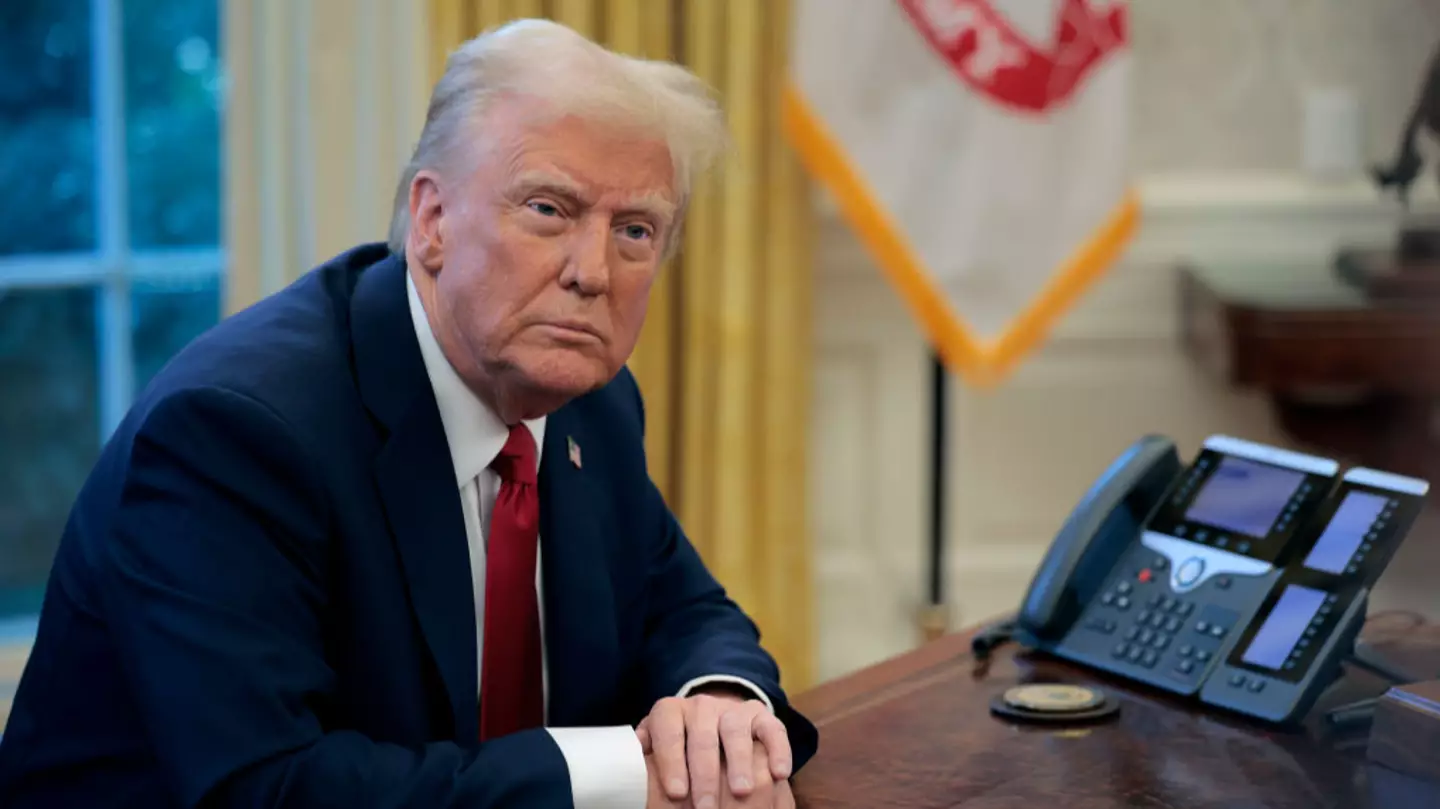

Global health experts have been left concerned after President Donald Trump made cuts to the United States Agency for International Development (USAID).
Trump‘s administration announced cuts to the agency‘s workforce, as well as plans to freeze a number of its aid programmes across the globe.
What is USAID?
USAID – which has around 10,000 staff – is the world’s largest single donor of humanitarian aid, having spent over $40 million across the world in the fiscal year 2023.
The organization’s spending is decided by Congress, and focuses mainly on providing aid overseas and supporting international charities. Some of the money goes to the likes of women’s health in conflict zones, access to clean water, and HIV/AIDS treatment.
While Trump’s administration has criticized the agency’s spending and announced huge cuts to its workforce, a number of health experts have expressed their concerns over the dismantling of USAID.
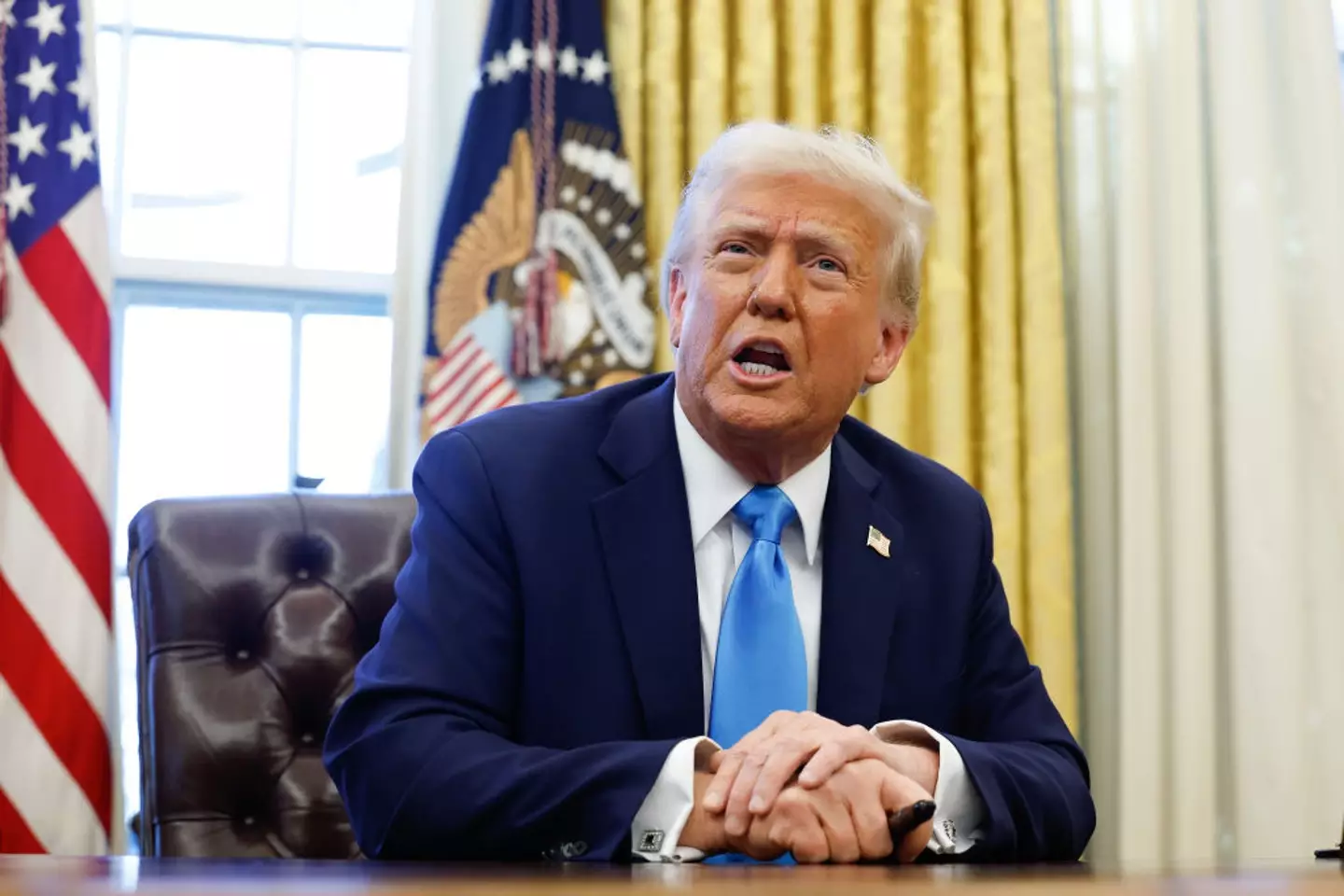

Trump’s administration has announced cuts to USAID (Anna Moneymaker/Getty Images)
Criticism of the Trump administration’s cuts
Dr Tom Wingfield, an expert in tuberculosis, spoke about some of the consequences of Trump’s decision.
“People don’t appreciate the extent and reach of USAID. It goes towards under-nutrition, hygiene, toilets, access to clean water, which all have a massive impact on TB and diarrhoeal diseases,” he told BBC. “Diseases don’t respect borders – that’s even more the case where we have climate change and mass movement of people. Infectious diseases will spread.
“Whether it’s a research project or a clinic affected, then we run risk of further transmission. People will die directly because of cuts in US funding.”
Meanwhile, in South Africa, it’s reported that some HIV services have stopped, something which Professor Peter Taylor has described as ‘undermining people’s trust’.
“Stopping things suddenly undermines people’s trust. People are bewildered and angry,” he said. “The undermining of basic trust is the real cost and that is being magnified in many situations around the world. This is so damaging to the US global reputation.”
Professor Rosa Freedman, of the University of Reading, has said that health programmes could suffer greatly, which could lead to global problems when it comes to the spread of disease.
.jpg)
.jpg)
Experts have warned against the move (Anna Moneymaker/Getty Images)
“This will be partly due to the prevention of further vaccines being distributed or funded by USAID,” she said. “This could mean that preventable diseases, which we thought had been contained or even eradicated, could reappear or worsen, such as cholera and malaria.
“Given the globalised and interdependent nature of our planet, the concern will be that these diseases could spread quickly and far.”
On Friday (February 7) a judge temporarily blocked Trump from placing over 2,000 workers at USAID on paid leave.
The order – which also reinstates 500 workers already on leave – will remain until 14 February.
“All USAID employees currently on administrative leave shall be reinstated until that date, and shall be given complete access to email, payment, and security notification systems until that date, and no additional employees shall be placed on administrative leave before that date,” Judge Carl Nichols wrote.
